Top Tips for Easy Commercial Solar Installation for Ontario Businesses
Dean Emerick
May 30, 2023

Installing commercial solar panels in Ontario is easier than ever, thanks to solar installation services available locally. Clear steps, from consultation to installation, and strong financial incentives make the process straightforward. This article explains how Ontario businesses can switch to solar power effortlessly.
Key Takeaways
- Ontario's abundant sunlight and supportive policies make it an ideal location for commercial solar panels, allowing businesses to achieve energy independence and cost savings.
- The solar energy installation process is simple and streamlined, starting with expert consultations and site assessments, followed by custom system designs tailored to your facility's needs.
- Substantial financial benefits, including up to 90% savings on electricity bills and available government incentives, make investing in solar power a smart and sustainable choice for Ontario businesses.
Understanding Ontario's Solar Potential
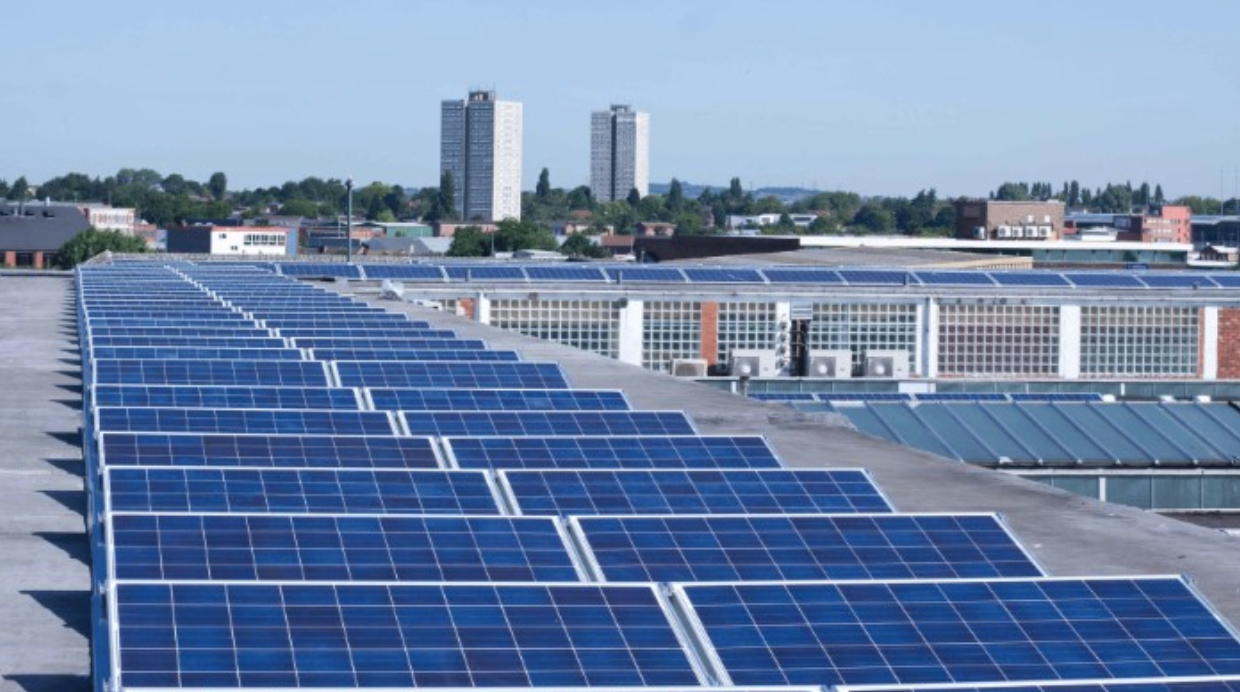
Ontario stands out as a leader in solar energy in Canada, with a total installed solar capacity of 2,670 Megawatts. Reflected in large-scale projects like the Nanticoke Solar Plant (66 MW) and the Southgate Solar Project (50 MW), which alone support approximately 8,400 homes each year. These projects highlight the immense potential for businesses to harness solar power.
Supportive renewable energy policies further enhance Ontario's suitability for commercial solar installations. These policies create an encouraging environment for businesses to adopt solar solutions, contributing to Ontario's clean energy transition.
With the province's abundant sunlight and progressive policies, businesses can achieve significant energy independence and cost savings by installing solar panels today.
Abundant Sunlight
Ontario benefits from consistent sunlight throughout the year, making it a prime location for generating solar energy. On average, solar panel systems in the province receive approximately 1,166 full sunlight hours annually, enabling steady and reliable electricity production. This level of solar exposure allows businesses to reduce their reliance on the grid and move toward greater energy independence.
The dependable solar potential also strengthens the case for investing in commercial solar panels. Businesses can take advantage of underutilized roof space, including secondary rooftops and mounting brackets, to maximize solar exposure and system efficiency. This strategic approach not only enhances energy output but also turns available space into a long-term, cost-saving asset.
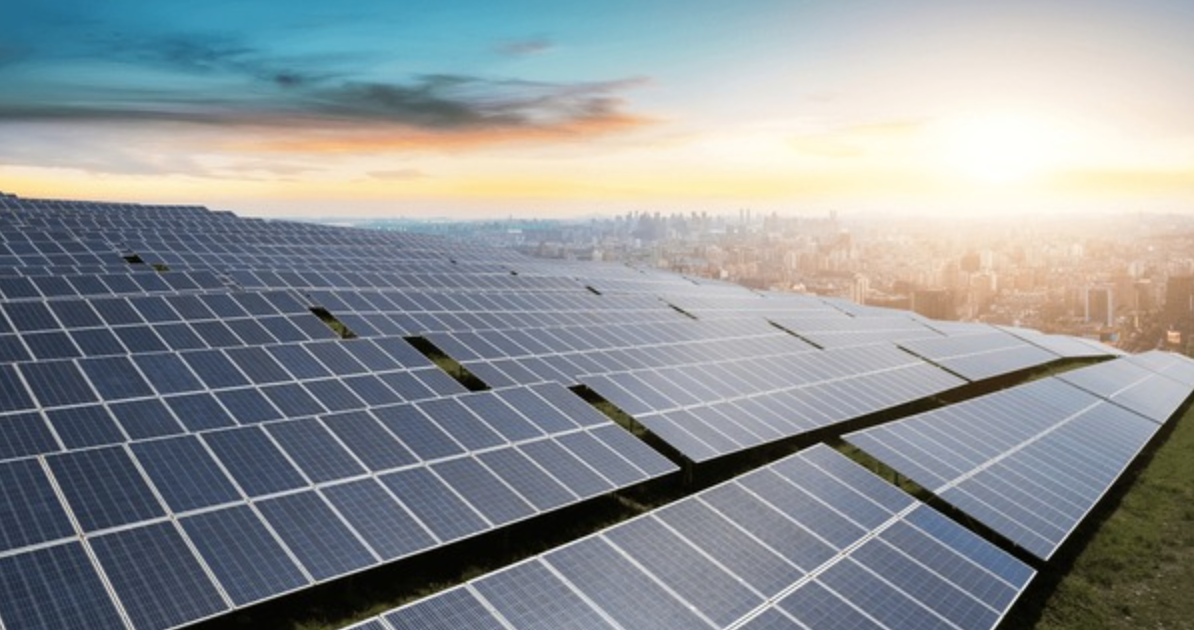
Supportive Renewable Energy Policies
Ontario's renewable energy policies are designed to support commercial solar installations and make the transition to solar power seamless for businesses. These forward-looking policies not only help reduce operational energy and electricity prices but also align with evolving customer expectations and carbon footprint goals. Adopting solar power allows businesses to showcase their commitment to sustainability and attract environmentally-conscious customers.
Government programs and rebates play a crucial role in making solar energy more accessible and affordable for businesses. These incentives significantly increase the profitability of solar systems projects, encouraging more businesses to invest in their own electricity. Reducing reliance on fossil fuels and lowering carbon emissions helps businesses contribute to a more sustainable future.
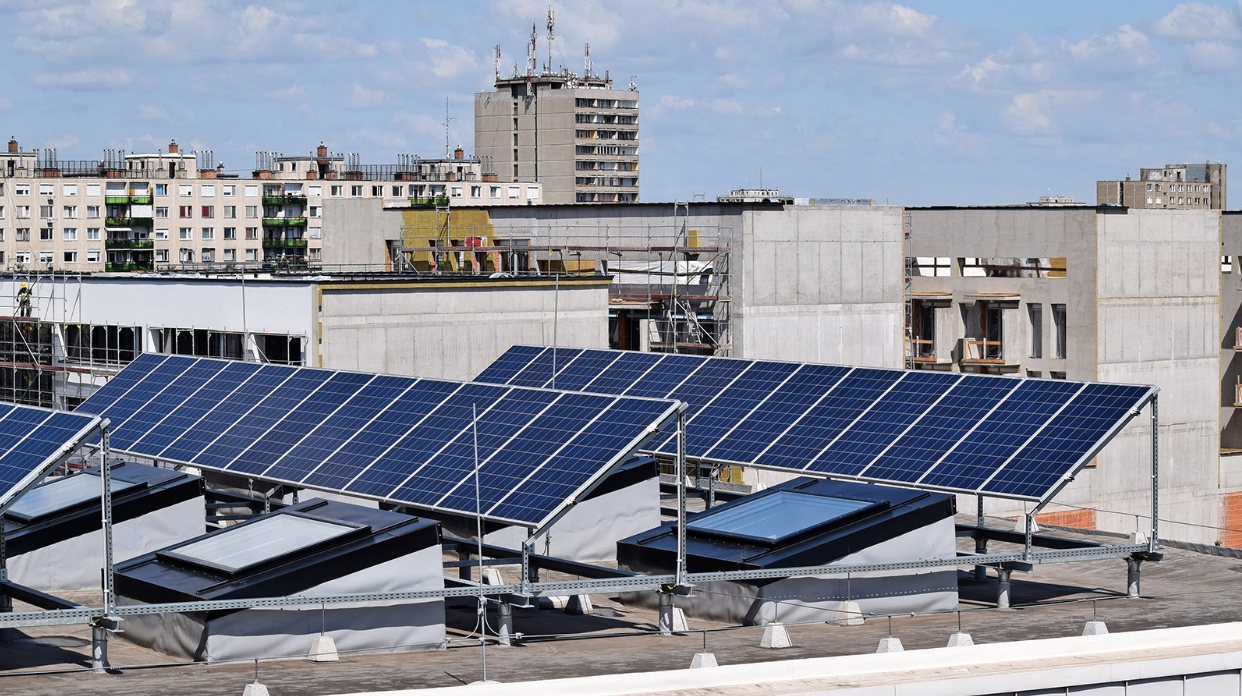
Simplified Process for Commercial Solar Installation
Investing in a commercial solar installation may seem complex at first, but the process is more straightforward than it appears. It begins with a professional free consultation with SolrSolvr, where an expert evaluates your current energy consumption and assesses your environment and installation site to design a solar solution tailored to your business's specific needs.
The installation process typically follows several essential steps: an initial site assessment, system design and engineering, securing necessary permits, and finally, installation and system commissioning. Each stage plays a critical role in ensuring the seamless integration of solar technology into your operations, maximizing performance, efficiency, and long-term savings.
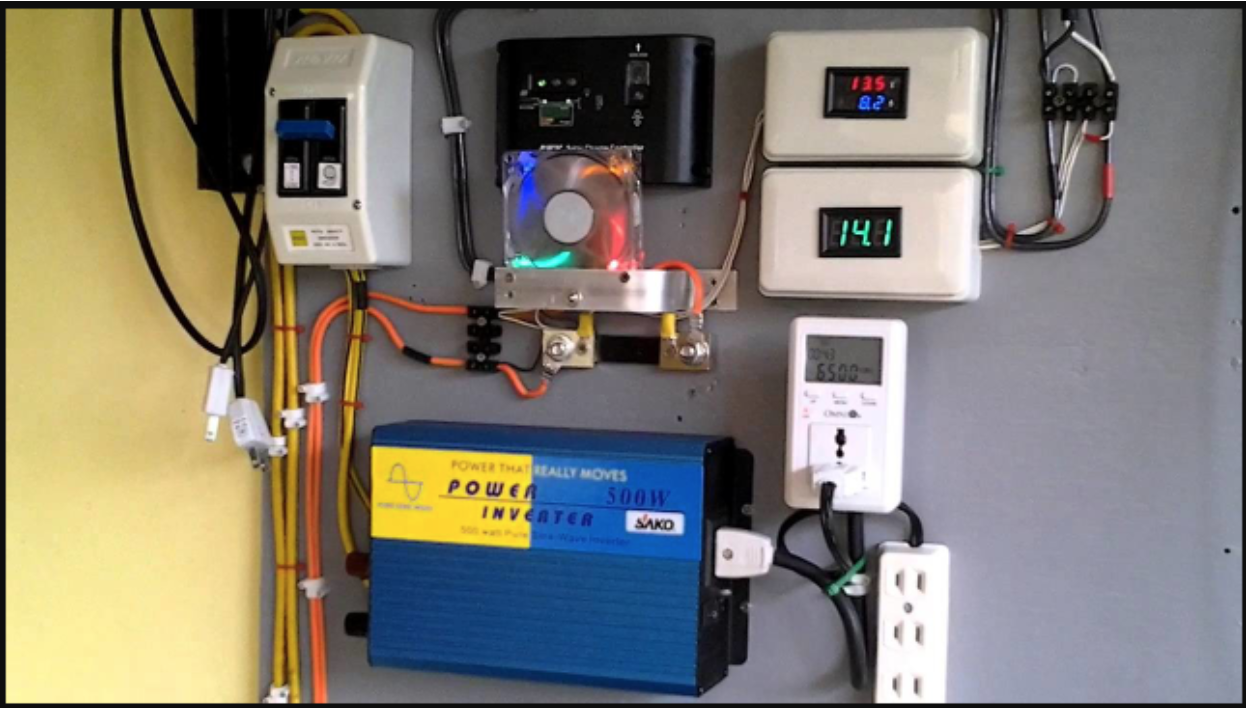
Initial Consultation and Site Assessment
The journey to solar energy begins with a free consultation and a comprehensive site assessment. During this phase, professionals evaluate factors like geographic location, shading, and the structural integrity of your building to design an optimal solar system. Understanding these factors is crucial for efficient solar panel placement, ensuring maximum energy production.
Optimizing roof space for solar panel placement involves adding brackets and utilizing secondary rooftops. Additionally, smart energy management systems can be integrated to monitor energy production and consumption, further enhancing the efficiency of your commercial solar installation.

Design and Permitting
Once the site assessment is complete, the design phase begins. Using advanced solar modeling tools and satellite imagery, professionals build accurate designs for your solar installation. This phase also involves obtaining the necessary permits, which is a crucial step in ensuring compliance with local regulations.
Options for mounting commercial solar panels include roof racks, ballasted systems, and ground-mounted structures. Each option is tailored to suit the specific needs of your property, ensuring that the solar panels are securely installed, future-proof, and capable of generating maximum energy.
Installation and Commissioning
The installation phase typically takes between 1 and 3 months, during which solar panels are integrated with your existing electrical grid. This phase includes rigorous testing to ensure safety and efficiency, guaranteeing that your solar panel system is ready to produce electricity.
Commissioning involves final checks and adjustments to ensure the solar PV system operates at peak performance. Upon completion, property owners will have a fully functional solar panel system, ready to harness solar power and provide substantial energy savings.
Financial Benefits and Incentives
One of the most compelling reasons for installing solar panels is you get to save money significantly. Businesses can save up to 90% or more on their electricity bills by installing solar PV systems. In addition to being able to save big, solar installations also enhance property value and provide a competitive edge in the market.
Government incentives and tax credits make commercial solar more financially viable. Ontario's net metering program helps businesses save by earning credits for surplus energy. Federal programs further reduce upfront costs, increasing overall returns.
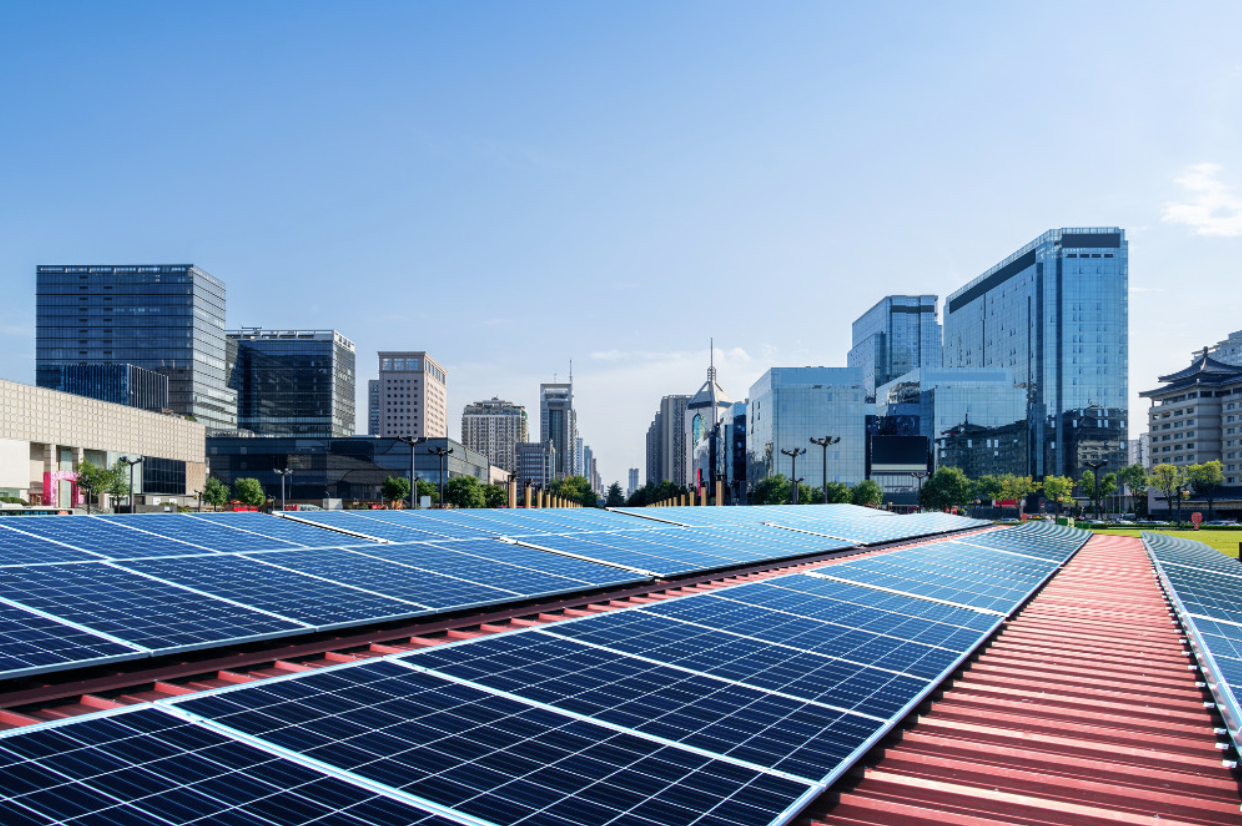
Cost Savings on Electricity Bills
Installing solar panels can drastically reduce energy bills, with some businesses experiencing reductions of up to 90%. Generating electricity on-site helps businesses hedge against rising utility rates and even eliminate monthly energy bills. This leads to substantial electricity cost reductions and greater control over power usage, especially as electricity prices continue to fluctuate.
Solar energy delivers strong financial returns while boosting a business's sustainability profile. Adopting solar solutions helps reduce costs, strengthen environmental credibility, and support long-term climate goals.
Government Incentives and Tax Credits
Ontario offers various government incentives and tax credits to encourage businesses to adopt commercial solar panels. For instance, the federal tax credit covers 26% of solar installation costs, easing the initial investment. Programs like the Clean Technology Investment Tax Credit offer added financial support, making solar more affordable for businesses.
Ontario's net metering policy lets property owners earn credits for excess solar energy sent to the grid. These credits help offset future electricity use, boosting overall savings and making solar systems even more cost-effective.
Financing Options
Flexible financing options make it easier for businesses to adopt solar energy without facing significant upfront costs. These solutions are designed to suit various financial needs and operational goals.
Many banks and financial institutions offer tailored loan plans for commercial solar plans. In many cases, the savings from reduced energy bills can cover or exceed the loan repayments, making solar a smart long-term investment.
By exploring available financing options, businesses can transition to solar power affordably while benefiting from long-term savings and enhanced sustainability.
Maximizing Solar Energy Efficiency
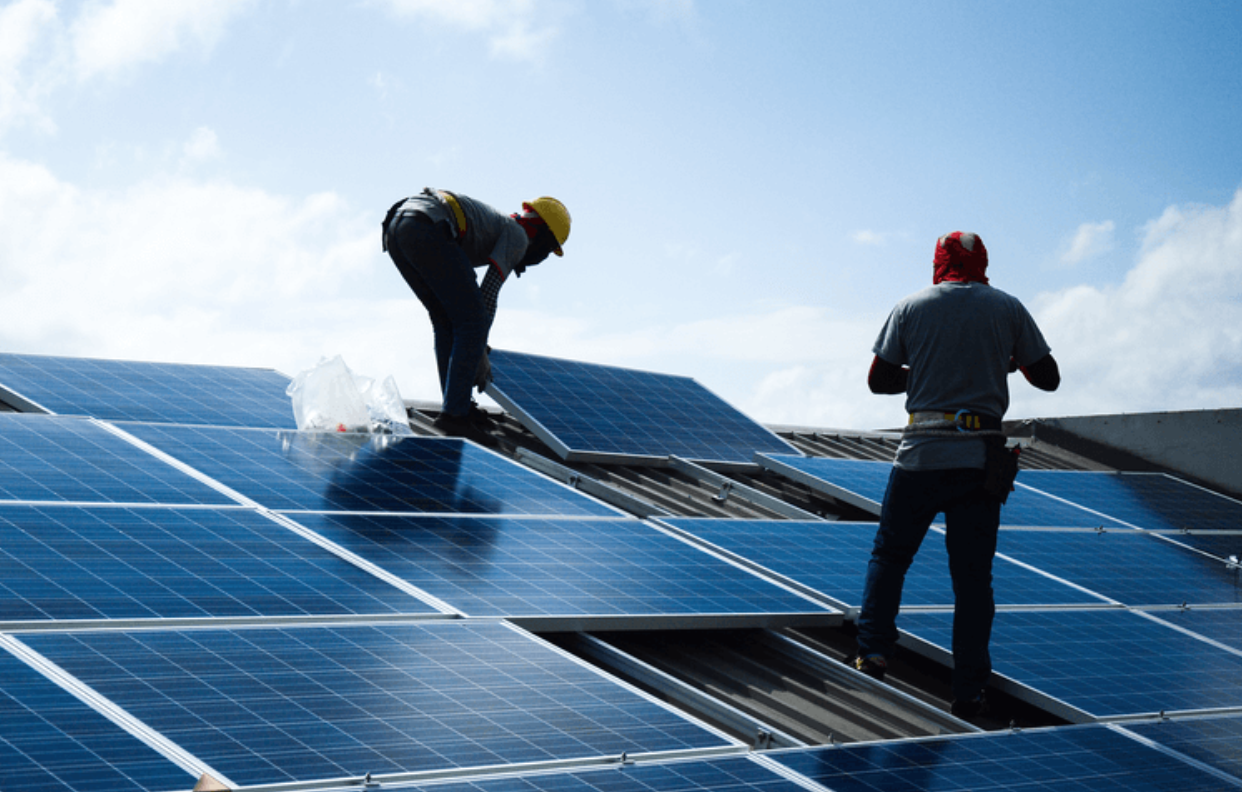
Maximizing the efficiency of your solar installation is key to getting the best return on investment. Businesses can boost energy generation and reduce costs by adopting smart strategies such as:
- Using multiple technologies
- Implementing smart management systems
- Ensuring proper maintenance and monitoring to guarantee the long-term performance of your solar panel system.
Businesses should consider adding energy storage systems to capture excess solar power during peak production. This stored energy provides a reliable backup during low sunlight periods, boosting overall energy independence.
Optimal Panel Placement
Proper placement of solar panels is essential to maximize energy production. In the Northern Hemisphere, panels should ideally face true south to capture the most sunlight. Adjusting the tilt angle seasonally can further enhance energy output by optimizing sun exposure throughout the year.
It's also important for businesses to conduct a shading analysis to identify any obstacles that could cast shadows on the panels. Minimizing shading ensures the solar system operates at peak efficiency, generating the maximum possible electricity.
Integrating Energy Storage Systems
Energy storage systems play a crucial role in maximizing the benefits of solar energy. These systems store excess power generated during peak sunlight hours, which can be used during periods of low production or high demand. This approach not only optimizes energy use but also significantly lowers electricity bills by reducing peak demand charges.
Integrating energy storage systems also provides resilience against power outages, ensuring that critical operations can continue without interruption. This enhances the reliability of your own electricity supply and adds an extra layer of security for your business.
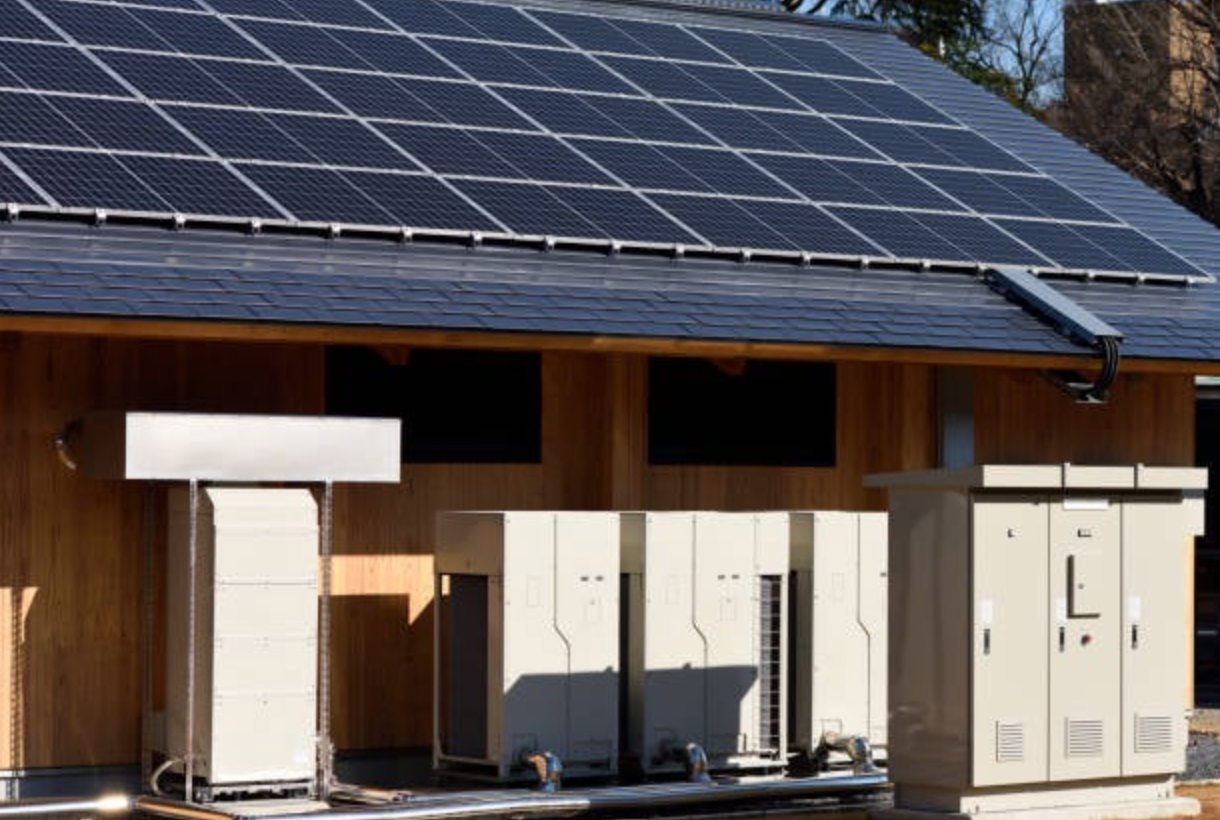
Regular Maintenance and Monitoring
Regular maintenance and monitoring are essential to keep your solar panel system operating at its best. Solar panels require very little maintenance, mainly involving routine cleaning and occasional check-ups. Annual preventative checks are recommended to ensure optimal performance and address any potential issues early.
Routine cleaning of solar panels is crucial to maintaining their efficiency and performance over time. Maintaining a regular schedule ensures that solar energy systems continue to provide reliable and efficient energy production.
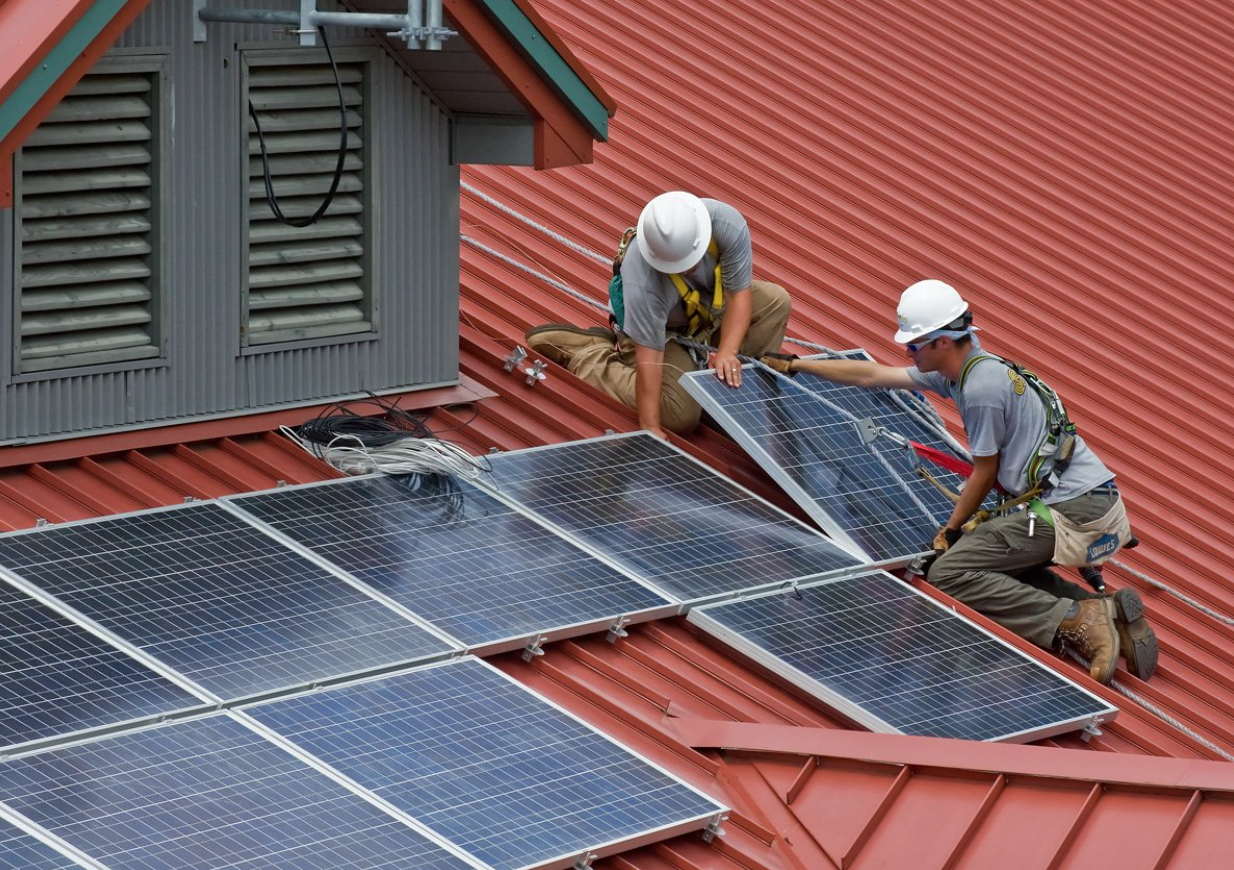
Manufacturing Plant Transformation
A manufacturing plant in Ontario transformed its operations by adopting solar power, significantly reducing its carbon emissions. Integrating solar energy into the manufacturing processes not only contributed to sustainability efforts but also provided substantial cost savings.
The plant's shift to solar energy highlights the financial and environmental benefits of renewable energy adoption. By reducing dependency on fossil fuel, the plant has enhanced its operational efficiency and demonstrated a strong commitment to sustainability.
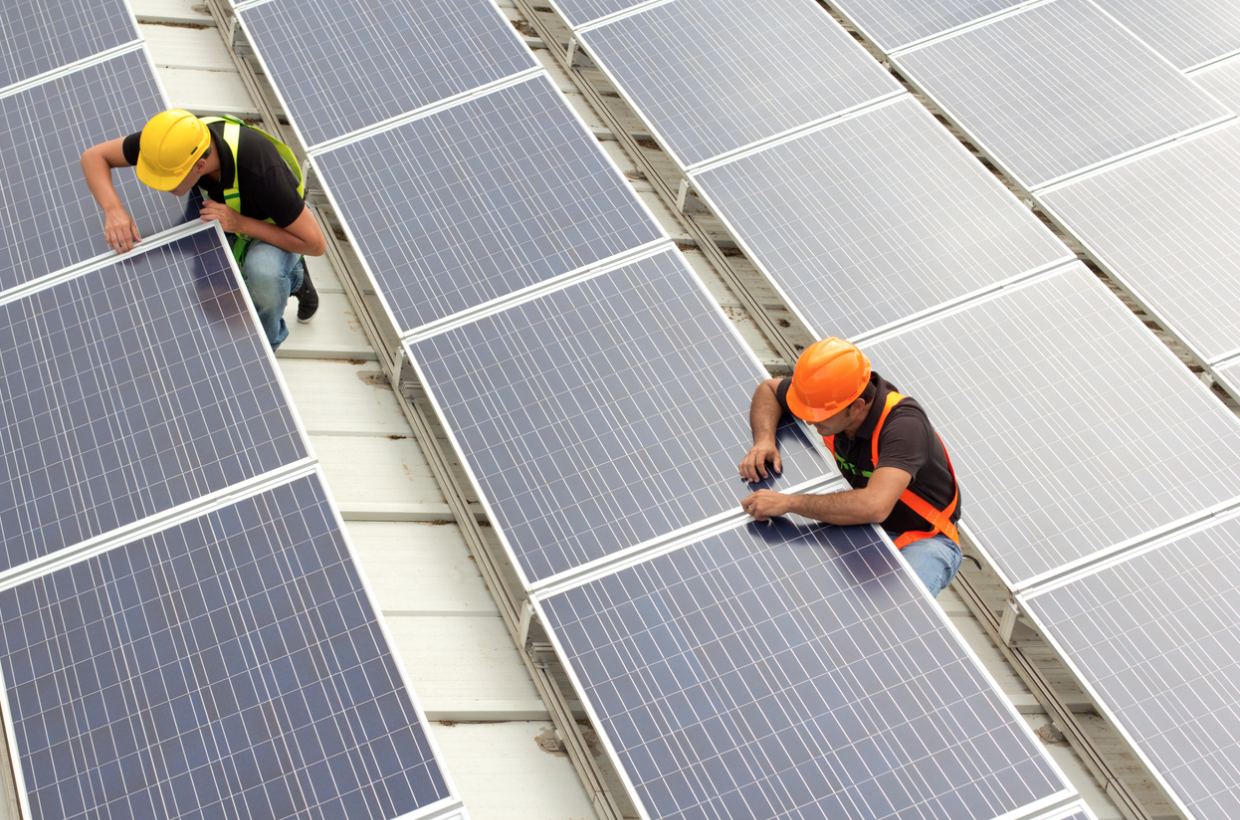
Want real-world success stories? We’ve got plenty. Contact us to learn how businesses like yours are cutting costs and going solar.
Summary
In conclusion, commercial solar programs present a valuable opportunity for Ontario businesses. The province's ample sunlight, supportive policies, and attractive financial incentives combine to create an ideal environment for adopting solar power. By investing in solar panels, businesses can lower energy costs, improve sustainability, and gain greater energy independence.
Real-world case studies highlight the tangible financial savings and environmental benefits that solar energy can deliver. As more businesses prioritize cost-effective and eco-friendly solutions, commercial solar offers a clear and promising path forward. Embrace solar energy today and take a meaningful step toward a cleaner, greener future.
Frequently Asked Questions
How much can a business save on electricity bills by installing solar panels?
You can save up to 90% or even more on electricity costs by installing solar panels for your business, with potential reductions hitting 90% in some cases. Making the investment in solar energy is not just smart; it's a powerful way to enhance your bottom line!
What government incentives are available for commercial solar installations in Ontario?
You can take advantage of generous incentives for commercial solar installations in Ontario, such as the federal tax credit and a refundable Clean Technology Investment Tax Credit. Additionally, the net metering program allows you to earn credits for any surplus energy your system produces, making solar a smart financial choice!
How long does the installation of solar panels typically take?
The installation of solar panels usually takes about 1 to 3 months, so you can start enjoying renewable energy sooner than you think! Get ready to make a positive change!
What maintenance is required for solar panels?
Keeping solar panels clean and scheduling annual preventative checks are essential to ensure they perform at their best. This minimal maintenance helps you minimize your energy costs and stay sustainable!
Can solar panels generate electricity during cloudy weather or winter months?
Absolutely, solar panel systems can still generate electricity on cloudy days and during winter months, just with reduced efficiency. So don't let the weather stop you from harnessing solar energy!
How does installing solar panels help reduce my carbon footprint and electrical usage?
Solar panels generate clean, renewable energy from a reliable source, the sun, reducing reliance on fossil fuels. This cuts your carbon footprint while lowering your electrical usage from the grid.


.png)
